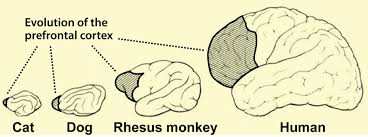A common belief is that man is by nature selfish, greedy and potentially ruthless.
However, this is not a true picture according to the article “The Capitalist Big Lie about Human Nature” by John Spritzler. He exposes the untenability of this negative view which has been at the basis of Capitalism as well as Communism>
The Big Lie is that selfishness is the primary human motivation, always has been and always will be because it is simply human nature.
..The Big Lie about human nature is used by defenders of capitalism when they tell us that there is no point in trying to create a better world that is more equal and democratic. Even if we succeeded initially, they say, it would just revert back to the same inequality we have today because human nature would remain the same.
Spritzler notes that there are various observations indicating that humans are not by nature selfish and greedy. He mentions the unselfish behaviour in hunter-gatherer societies like the Hottentots (Bushmen).

“If anything is given to a Hottentot, he at once divides it among all present… He cannot eat alone, and, however hungry, he calls those who pass by to share his food. “
After presenting numerous other examples of unselfish behaviour he concludes:
“..there is abundant proof that the capitalist assertion about human nature being the same as capitalist nature is flat out false. There are countless Big Facts that refute it.”
George Monbiot has recently written an article in the same vein “We’re not as selfish as we think we are. Here’s the proof“. He mentions a not yet published survey by the Common Cause Foundation:
“..a large majority of the 1,000 people they surveyed – 74% – identifies more strongly with unselfish values than with selfish values. This means that they are more interested in helpfulness, honesty, forgiveness and justice than in money, fame, status and power.”
Monbiot also mentions a review article in the journal Frontiers in Psychology that
“..points out that our behaviour towards unrelated members of our species is “spectacularly unusual when compared to other animals”.
..Humans, by contrast, are ultrasocial: possessed of an enhanced capacity for empathy, an unparalleled sensitivity to the needs of others, a unique level of concern about their welfare, and an ability to create moral norms that generalise and enforce these tendencies.

He mentions studies of small children that indicate that already below 2-3 years of age before cultural patterns have influenced them, they are unselfish and have a good sense of fairness.

Comment
I was quite happy to read these recent articles because this understanding is well in accord with the message of this blog that was started nine years ago:
Humans are by nature humane, unselfish, non-greedy, compassionate, (see Balanced-Emphatic-Behavior (BEB)) and regress to inhumane behaviour only under stress (see Survival-Oriented-Behavior (SOB)).
The latter behaviour pattern which is controlled by primitive midbrain centres is the remains of an earlier stage of evolution and was appropriate for optimizing survival in life-threatening situations.
The development of the prefrontal cortex brought about intelligent, foresightful and cooperative behaviour which made it possible for the species Homo Sapiens to survive through “smart” strategies without having to regress to primitive survival-oriented behaviour. Furthermore, it enabled the creation of societies and group cooperation that greatly enhanced the possibility to create common defense solutions against external dangers. I think that the importance of this factor has not been sufficiently considered among researchers in this field. It seems likely that it played a key role in enabling the successful survival and expansion of the Homo Sapiens species.

This enabled the successful development of more advanced cultures and the intelligent development of effective cooperation-based defenses as well as means for ensuring sufficient availability of food through teamwork in hunting as well as in growing useful food sources. This favored the selection of genes responsible for more advanced development of brain (frontal cortical) centres responsible for smart and humane behaviour on the expense of primitive, selfish, ruthless midbrain-controlled survival-oriented tendencies. Unfortunately, in our civilization, there has been a regress towards more of Survival-Oriented-Behavior because of conditions that generate insecurity and stress.
The humane, unselfish and ethically high-level behaviour of people in some indigenous cultures untouched by our “civilization” like the Hottentots is an example that our stress-ridden culture needs to learn from. Their cultural behaviour is well in accord with the vision in the blog posting “Is it possible to change the world?“.
A beautiful demonstration of the untenability of the negative belief about human nature is the experience from a San Fransisco Bay school that had severe problems with bullying, violence and chaotic lessons. The director of this School, Mr. James Dierke, got the “Best school director award” of 2008 (among 30.000 directors) for the transformation of this school to a peaceful place with no bullying and violence. The only thing he did was to introduce a simple technique with a well-documented ability to promote the development of frontal-brain dominated (BEB) behaviour. The technique was Transcendental Meditation (TM). This is just one of many examples of the transformative effects of TM. and the reason why Brasil, where TM has been practised in some schools since 30 years with similar results, decided to make TM practice twice daily part of the curriculum of all public schools.
So the experience from schools confirms that the negative behavior tendencies believed to be fundamental aspects of human nature, are the result of disturbances that can be eliminated, giving way to friendly, unselfish, compassionate behavior – the true elements of human nature.

